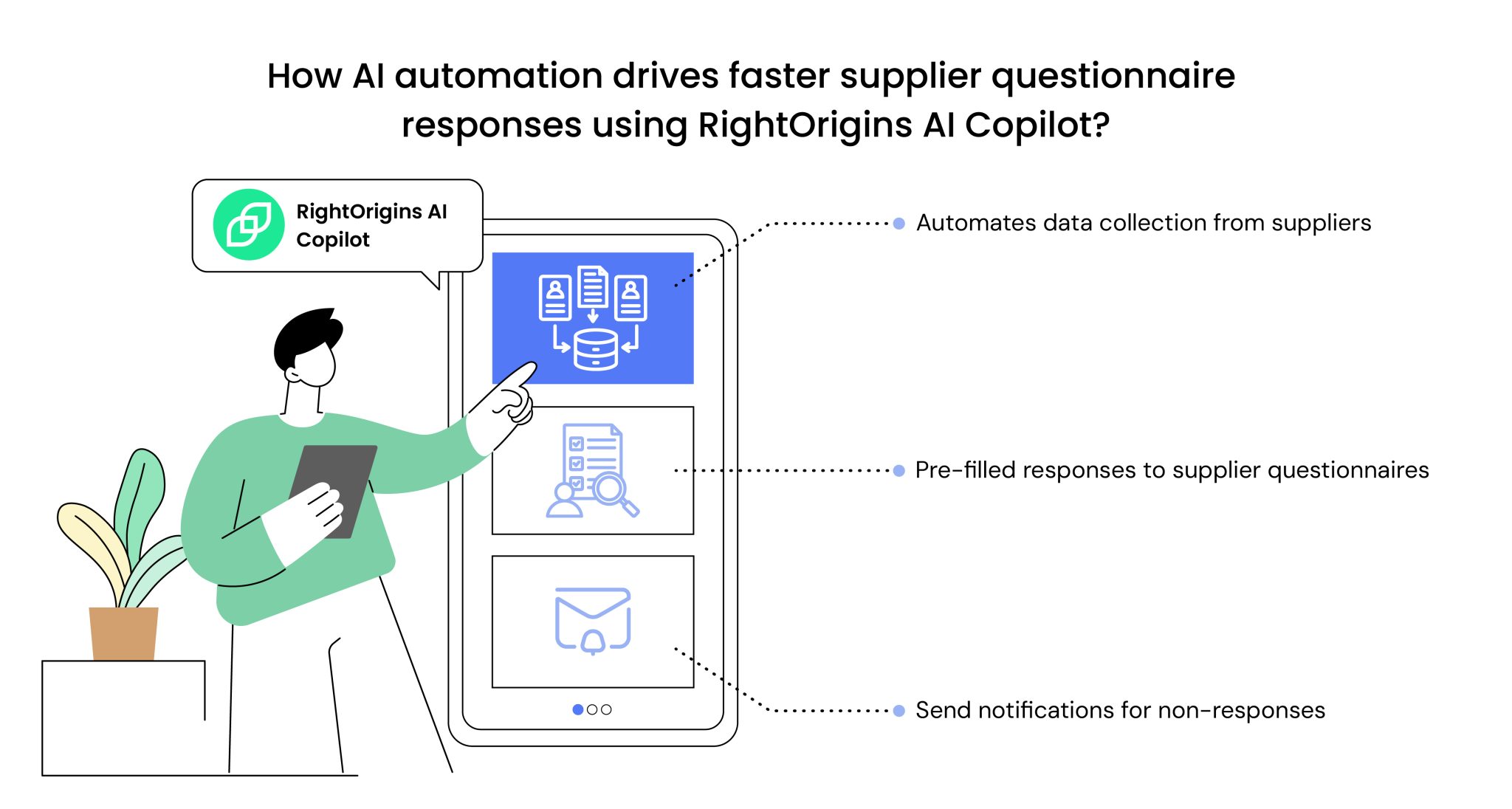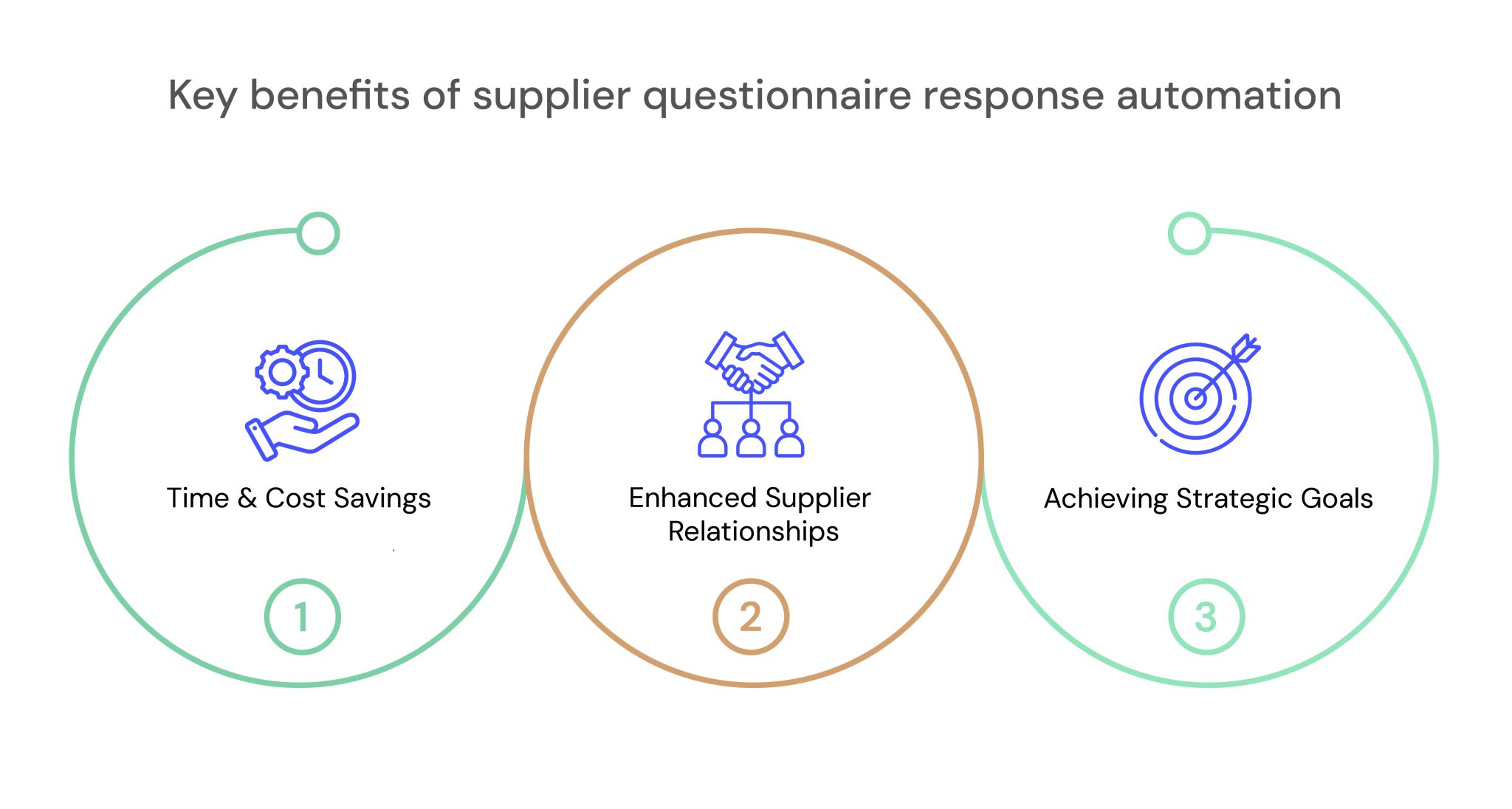Summary
Companies often struggle to get accurate and timely data from many suppliers, especially as compliance reporting deadlines approach. Even with set goals to gather information from hundreds of suppliers, teams often find it challenging to secure enough responses for ESG questionnaires and surveys. The low response rates and incomplete data disrupt the overall supply chain transparency, slowing down decision-making, and impacting sustainability goals. An automated platform helps battle these odds of delayed response rates and the monotony of repetitive tasks.
The Supplier Data Collection Challenge
Collecting supplier data is one of the biggest challenges faced by the sustainability and procurement departments of companies. Compliance regulations and sustainability standards change regularly. Supplier data management involves systematically collecting, organising, and maintaining key information on suppliers to enable efficient procurement operations and ESG disclosure requirements. Effective management requires tracking supplier profiles, contact details, performance metrics, compliance records—including crucial data related to environmental, social, and governance (ESG) criteria—and other vital information. However, companies often face significant challenges in obtaining accurate and timely data from a broad supplier base, especially under tight reporting deadlines.
Reimagining Supplier Data Collection with AI and Automation
Leveraging AI-powered tools can reduce the manual burden on suppliers, making it simpler for them to respond to questionnaires and provide essential information. Moreover, automated systems can streamline data entry, minimise errors, and enhance data accuracy, all while increasing response rates. By shifting routine tasks to AI, companies can create a more collaborative and transparent supplier ecosystem, where both parties benefit from less paperwork and faster, more reliable data sharing.
Benefits of Leveraging AI for Routine Supplier Tasks:
Automating repetitive tasks within a centralised platform enables sustainability teams to shift their focus from data collection to strategic planning and deeper analysis. By handling routine aspects of data gathering, such as sending reminders and processing responses, automation not only saves time but also minimises the potential for human errors, leading to more accurate and dependable supplier data. This reliability allows teams to make informed decisions, driving impactful sustainability initiatives rather than being bogged down by administrative tasks. Ultimately, an automated, centralised system enables a seamless flow of high-quality data, paving the way for stronger insights, faster decision-making, and more effective sustainability planning.
AI Copilot for Suppliers: Fastening the Response Process
Our platform, RightOrigins equips suppliers with the power of AI by significantly reducing the time they spend on manual data entry, enhancing the speed and accuracy of their responses. By extending the RO AI Copilot to suppliers, our platform simplifies questionnaire completion by up to 70%, guiding them with recommended file uploads and response suggestions based on existing documents. Finally, this streamlined approach increases the likelihood of timely and precise replies, making data collection smoother and more efficient for everyone involved.

Data-privacy approach
RightOrigins prioritises privacy, making sure that supplier data is treated with the highest care and consideration. The Supplier AI module is designed to process data separately, allowing suppliers to maintain control over the information they choose to share. This feature not only enhances data security but also aligns with RightOrigins’ commitment to ethical data practices. Additionally, suppliers are given the option to opt into this AI support, reinforcing trust by allowing them to choose when and how they participate. This opt-in model fosters a transparent, adaptable environment, encouraging supplier engagement while safeguarding their privacy preferences.
How do organisations benefit from streamlined, accurate data collection?
Automation through RightOrigins’ AI Copilot drastically reduces the time required for data collection, cutting back on manual efforts, follow-ups, and administrative tasks. By minimising repetitive work, organisations save on resource costs and free up teams to focus on more impactful tasks, like strategic analysis and planning. This efficiency is reflected in stronger supplier relationships as well—AI Copilot simplifies the data-sharing process, making it easier and faster for suppliers to respond to questionnaires. This reduced workload for suppliers demonstrates a commitment to a collaborative, supportive partnership, fostering trust and encouraging future collaboration.

Conclusion
Effective procurement operations depend on the management of supplier data. In the current business climate, companies need to effectively manage their suppliers in order to remain competitive. This can be accomplished by implementing centralised supplier data management systems and efficient supplier data management procedures. These practices can help companies to streamline procurement processes, improve supplier relationships, reduce risks and save costs while increasing operational efficiency.
